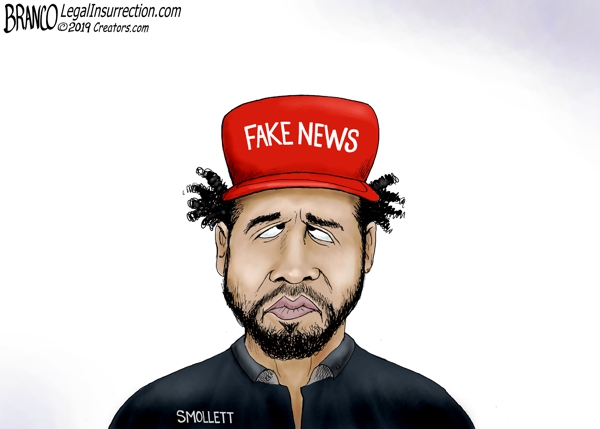Circuit Judge Laurence Silberman calls for libel laws to be revised
04/05/2021 / By Nolan Barton

A federal appeals court judge in Washington used his dissent in a defamation case to call for libel laws to be revised. Circuit Judge Laurence Silberman’s dissent came in a 2-1 decision to throw out a case filed by two Liberian government officials against Global Witness, an environmental and human rights group.
The officials argued that a Global Witness report implied their acceptance of bribes. But the majority opinion said that Global Witness was protected by the “actual malice” precedent of the 1964 Supreme Court decision in New York Times Co. v. Sullivan.
Silberman said the group’s support for its claims was so flimsy it should not have been protected under the Supreme Court’s landmark libel ruling.
He went on to say that the Supreme Court should overturn its “actual malice” precedent altogether, claiming that this protection allows major media corporations and newspapers “to cast false aspersions on public figures with near impunity.”
The conservative judge said the press often “manufactures scandals involving political conservatives.” (Related: Yes, it’s time to change America’s libel laws to stop the deliberate lies and false smears pushed by left-wing “journalists.”)
Former President Donald Trump made similar accusations and suggested libel laws should be “opened up” to make it easier to sue media outlets. Journalists have faced increasing scrutiny about inaccuracies and the high occurrence of fake news. With breaking news being delivered in a tweet or a Facebook post, it is easier now more than ever for journalists to simply get it wrong.
Silberman warns liberal control of the media can thwart democracy
In his dissent, Silberman said the New York Times and the Washington Post are “virtually Democratic Party broadsheets,” while the news section of the Wall Street Journal “leans in the same direction.” He added that the major television outlets and Big Tech social media companies were similarly biased. (Related: Facebook to push more left-wing FAKE NEWS by “flagging” real news as fake.)
Silberman said the increasingly left-wing nature of the mainstream media is a threat to American democracy.
“One-party control of the press and media is a threat to a viable democracy,” he said.
Silberman also noted it’s not all that good for [one] man and his son – Rupert and Lachlan Murdoch – to control Fox News, the New York Post, and the Wall Street Journal editorial page. He questioned how long they could hold out.
“After all, there are serious efforts to muzzle Fox News,” Silberman said without elaborating.
He ended his treatise with a warning that democracy could be thwarted by liberal control of the media.
“The first step taken by any potential authoritarian or dictatorial regime is to gain control of communications, particularly the delivery of news,” he said.
Supreme Court Justice Clarence Thomas criticizes New York Times Co. v. Sullivan
Silberman is not the first judge to take aim at New York Times Co. v. Sullivan. In 2019, Supreme Court Justice Clarence Thomas called for the decision to be reconsidered as having no basis in the Constitution.
Thomas criticized the landmark decision in a concurring opinion after the Supreme Court refused to hear an appeal by one of Bill Cosby’s accusers, Katherine McKee.
The First Circuit dismissed McKee’s lawsuit, finding that she voluntarily “thrust” herself into the public eye – becoming a limited-purpose public figure and inviting public scrutiny to the credibility of her allegations.
Applying the New York Times Co. v. Sullivan standard, a limited-purpose public figure cannot recover under a defamation claim without clear and convincing evidence of actual malice.
Thomas described the New York Times Co. v. Sullivan standard as “almost impossible” to satisfy as it relates to the classification of limited-purpose public figures and public figures.
“If the Constitution does not require public figures to satisfy an actual-malice standard in state-law defamation suits, then neither should we,” Thomas argued.
He contended that the rule defined in New York Times Co. v. Sullivan is “largely a judge-made rule of law.”
The New York Times Co. v. Sullivan started with an advertisement that appeared in the New York Times in 1960 titled “Heed Their Rising Voices.” It discussed the mass demonstrations of African Americans occurring throughout the south and the resistance they faced from officials.
Lester Bruce “L.B.” Sullivan, the police commissioner of Montgomery, Alabama at the time, sued the newspaper for publishing the advertisement. He said that the advertisement made false claims about the treatment of African Americans in the state.
A unanimous high court said the plaintiffs failed to show the newspaper acted with “actual malice.”
Follow NYTWatch.com to learn more about the fake news being propagated by the New York Times and the mainstream media.
Sources include:
Tagged Under: African-Americans, Big Tech, Constitution, defamation suits, dissent, fake news, Journalist, Judge Laurence Silberman, Justice Clarence Thomas, libel, libel laws, lies, media outlets, political conservatives, propaganda, smeared, Supreme Court
RECENT NEWS & ARTICLES
COPYRIGHT © 2017 BIASED NEWS




















